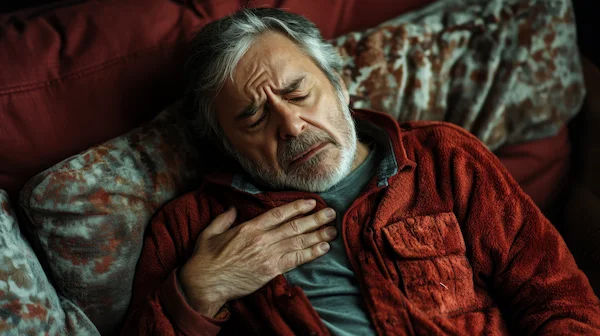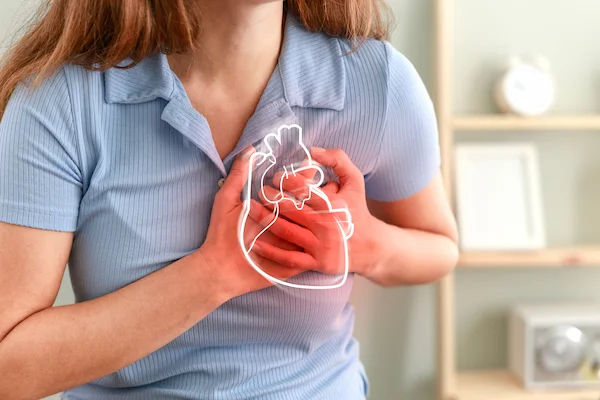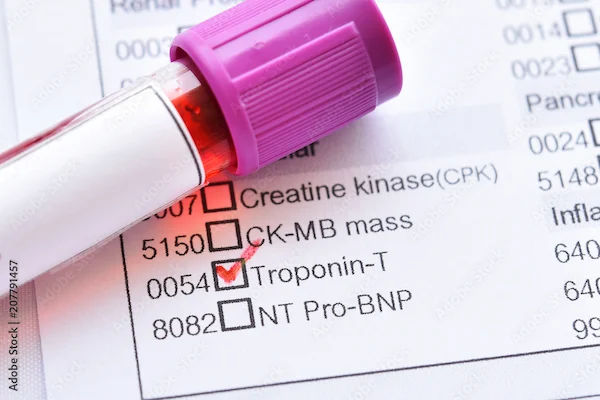- female
- 60 Years
- 29/01/2025
I'm really concerned about my mom. She's got diabetes and high BP, and her recent echocardiography test had some results that are making me anxious. Her exercise duration was 9.51 minutes, and her max heart rate hit 152 bpm, which is 88% of the target heart rate of 172 bpm. Her max BP was 16680 mmHg, and she reached a max workload of 11.14 METS. The stress test came back positive for RMI. The doctors are suggesting an angiography test. I'm really worried. Is everything okay, or should I be more concerned?
Answered by 1 Apollo Doctors
Based on the results of the stress test showing a positive for reversible myocardial ischemia (RMI) and the recommendation for an angiography test, it indicates that there may be reduced blood flow to the heart muscle during physical activity. This could be a sign of underlying coronary artery disease. To address this issue, your mother may need to undergo angiography to further evaluate the blood flow in her coronary arteries. Depending on the findings of the angiography, the doctors will be able to determine the best course of treatment, which may include medications such as aspirin, statins, and beta-blockers to manage her condition and reduce the risk of complications. It is important to follow the advice of the medical professionals and proceed with the recommended tests and treatments to ensure the best possible outcome for your mother's heart health.
Dr. Mubarak Suggests...
Consult a Cardiologist
Answered 04/07/2025
0
0

More Cardiology Health Queries
View allI'm 22 and dealing with some heart-related issues. I had my heart checked, and they found mild MVP. I was put on a beta blocker, but it hasn't really helped with the intense chest pain Ive been experiencing. They've now suggested Flavedon MR for the pain. Do you think that's the right route, or should I be considering other medication options? I'm just not sure what to do next.
For your chest pain related to mild MVP, Flavedon MR can be a suitable medication to try. It contains Trimetazidine and helps in improving blood flow to the heart muscle. The usual dosage is 35 mg twice daily. However, if you do not find relief with Flavedon MR, you can discuss with your doctor about alternative medications such as Ranolazine or Ivabradine which may be more effective for your chest pain associated with MVP.
Answered by 1 Apollo Doctors
I've just had an ECG, and the doctor mentioned there were some issues. They suggested I get an ECHO, which thankfully turned out to be normal. Now they've advised me to go for an angiography. I'm a bit uncertain about going for another test. Could you help me understand why it might be necessary? Also, they've prescribed me Clopidogrel IP 75 mg and Atorvastatin. Could you explain what these medications are for and if there are any side effects I should be aware of? I'm feeling a little lost here and would appreciate some guidance.
yes to continue all the medications as advised ,, angiography as a prognosis is advised..
Answered by 1 Apollo Doctors
I'm taking Metocard XL 25, but recently switched to Metocard XL 12.5, and I've noticed a rash on my chest and hand. It's painful. A while back, when I was on Inderal LA, I had a similar rash. My cardiologist thinks it might be a side effect from the medication and suggested I get some tests done. Could I be allergic to both of these beta blockers?
It is possible to have an allergic reaction or side effects from beta blockers, including Metocard XL (metoprolol) and Inderal LA (propranolol), which can manifest as rashes and pain in the affected areas. Since you experienced similar symptoms with both medications, its important to follow your cardiologist's advice and undergo the recommended tests to confirm the cause of the rash. In the meantime, discuss alternative medications or treatment options with your cardiologist to manage your condition without causing allergic reactions.
Answered by 1 Apollo Doctors
Disclaimer: Answers on Apollo 247 are not intended to replace your doctor advice. Always seek help of a professional doctor in case of an medical emergency or ailment.





